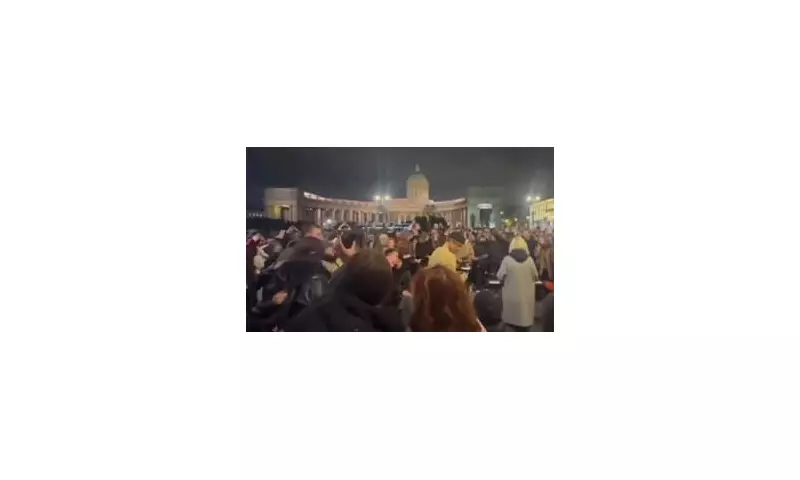
In a stunning act of defiance that echoes the brave dissidents of the Soviet era, a young Generation Z ballerina has transformed the stage of Swan Lake into a platform of political protest against Vladimir Putin's regime. The dramatic demonstration has ignited passionate debate about whether Russia's youth could become the catalyst for revolutionary change.
The Performance That Shook the Theatre
During a recent performance of Tchaikovsky's iconic Swan Lake at a prominent Russian theatre, a ballerina seized her moment in the spotlight to deliver a powerful political statement. While the audience expected classical perfection, they witnessed instead a brave act of resistance that harkened back to the darkest days of Soviet oppression.
The protest occurred during one of ballet's most celebrated works, a piece deeply embedded in Russian cultural identity. The choice of Swan Lake carries particular significance, as the ballet was famously broadcast during Soviet leadership transitions, becoming symbolic of political change in Russian consciousness.
Echoes of Soviet-Era Dissent
This modern act of defiance draws striking parallels with historical protests against authoritarian rule. During the Soviet period, artists and intellectuals often used cultural platforms to voice opposition when direct political speech meant certain persecution.
The ballerina's protest follows in the footsteps of legendary Soviet dissidents like Alexander Solzhenitsyn and Andrei Sakharov, who risked everything to speak truth to power. Like them, she has demonstrated that courage can manifest in unexpected places, even within institutions traditionally aligned with state power.
Why Gen Z Poses a Unique Threat to Putin
Russia's younger generation represents a particular challenge to the Kremlin's authority for several compelling reasons:
- Digital Natives: Unlike their predecessors, Gen Z Russians are technologically savvy and can access information beyond state-controlled media
- Global Perspective: Exposure to international ideas and values through social media and digital platforms
- Less Soviet Baggage: Born after the Soviet Union's collapse, they lack the ingrained fear that characterized older generations
- Economic Frustration: Facing limited opportunities and international isolation due to sanctions and conflict
The Power of Symbolic Resistance
Throughout Russian history, cultural protests have often preceded political upheaval. The arts have served as both a reflection of societal discontent and a catalyst for change. From the dissident writers of the 1960s to punk band Pussy Riot's provocative performances, symbolic resistance has consistently challenged authoritarian control.
This ballet protest demonstrates that even the most traditional Russian institutions are not immune to the winds of change. The very fact that such defiance occurred within the hallowed halls of Russian cultural tradition suggests deepening cracks in the foundation of Putin's power structure.
Could This Spark Wider Movement?
While isolated acts of protest rarely topple regimes, they can serve as powerful inspiration for broader resistance. The ballerina's brave stand comes at a time of increasing pressure on the Putin government, including:
- Economic challenges from international sanctions
- Military setbacks in ongoing conflicts
- Growing discontent among elite circles
- International isolation on the global stage
History teaches us that revolutionary moments often begin with seemingly small acts of courage that capture the public imagination. Whether this protest becomes a footnote or a turning point remains uncertain, but it undoubtedly signals that opposition to Putin's rule continues to find creative and powerful expressions.
The World Watches and Waits
As Western analysts and Kremlinologists examine this development, questions abound about its potential significance. While predicting Russian political outcomes has historically proven difficult, the emergence of youth-led resistance within cultural institutions suggests that the next challenge to Putin's authority may come from unexpected quarters.
The ballerina's protest serves as a poignant reminder that even in the most controlled societies, the human spirit yearns for freedom. Her graceful defiance in the spotlight may well inspire others to find their own stages for resistance, potentially reshaping Russia's political future in ways we cannot yet foresee.





